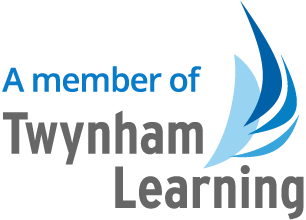P.S.H.E
Personal, social, health and economic (PSHE) education is an important and necessary part of all pupils’ education. All schools should teach PSHE, drawing on good practice, and this expectation is outlined in the introduction to the proposed new national curriculum.
PSHE is a non-statutory subject. To allow teachers the flexibility to deliver high-quality PSHE we consider it unnecessary to provide new standardised frameworks or programmes of study. PSHE can encompass many areas of study. Teachers are best placed to understand the needs of their pupils and do not need additional central prescription.
However, while we believe that it is for schools to tailor their local PSHE programme to reflect the needs of their pupils, we expect schools to use their PSHE education programme to equip pupils with a sound understanding of risk and with the knowledge and skills necessary to make safe and informed decisions
National Curriculum Guidance, 2014
Intent
Our PSHE curriculum is broad and balanced, with the aim that all children will be ‘lifelong learners’ with the confidence and ability to develop their skills and understanding when having new experiences, meeting new challenges and finding themselves in unfamiliar situations. We believe that PSHE education develops the qualities and attributes students need to thrive as individuals, family members and members of society. Our curriculum reinforces core British values and the also the principles upheld in our own “CJS Charter” which is the basis of our behavioural expectations.
Implementation
At Christchurch Junior School, we maintain high teaching standards in PSHE and aim to implement a curriculum that is progressive throughout the whole school. Therefore, we have adopted the mindful approach to PSHE using the Jigsaw programme. This is an integrated scheme of whole school learning for Personal, Social, and Heath Education with an emphasis on emotional literacy, mental health, and Spiritual, Moral, Social and Cultural (SMSC) development.
PSHE is taught in the same sequence, throughout the whole school, during weekly whole class Jigsaw lessons led by the class teacher and focusing on different topics each term. Jigsaw consists of six Puzzles (half-term units of work) containing six Pieces (lessons) for each academic year. Every Piece has two Learning Intentions, one specific to PSHE outcomes and the other designed to develop emotional literacy and social skills.
The themes covered below (known as the six Puzzles in Jigsaw) are designed to progress in sequence:
Autumn 1: Being Me in My World
Autumn 2: Celebrating Difference (including anti-bullying)
Spring 1: Dreams and Goals
Spring 2: Healthy Me
Summer 1: Relationships
Summer 2: Changing Me
Year group overviews:
| Year 3 | Year 4 | Year 5 | Year 6 |
We pride ourselves on our whole school events and activities e.g.
- An active School Council;
- Year 6 pupils acting as Peer Mediators to resolve friendship problems;
- Fundraising events for Children In Need, Christchurch Macmillan Unit etc
Impact
We feel it is important for children to make excellent progress not only academically, but to also enhance and support their social, moral, spiritual and cultural development.
Through the teaching of PSHE, it gives children the knowledge, skills and understanding that they need to stay healthy and safe, develop worthwhile relationships, respect differences, develop independence and responsibility, and make the most of their own abilities and those of others. Additionally, children will come to appreciate difference and diversity. The teaching of our PSHE curriculum and of British values, as well as the school’s own Charter, all play a crucial part in the ethos of our school.


